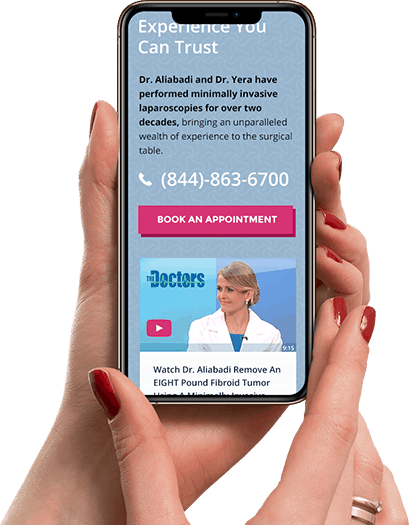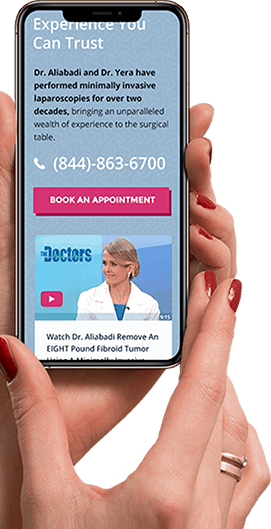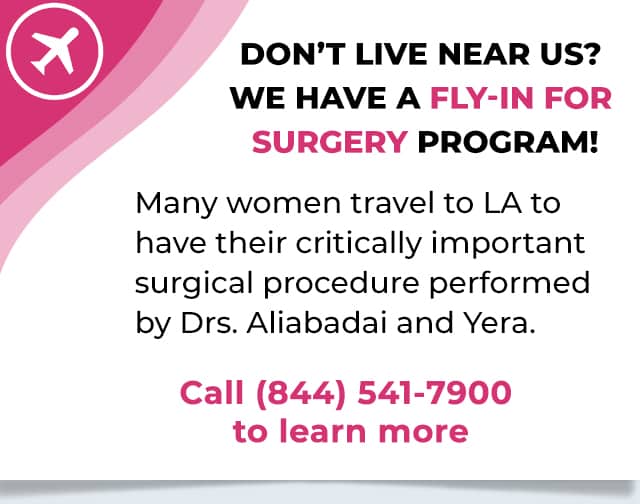Being involuntarily childless is often a painful, isolating experience. For many, marriage and children represent the natural evolution of adult life. Many women grow up assuming they will have children someday, and as they meet other milestones in life, motherhood becomes the next great goal.

And yet, maternity doesn’t always happen easily. Modern medicine promises us a plethora of fertility treatments and alternative therapies – but after years of failed IVF courses or miscarriages, many people eventually hit the point where they need to stop putting their lives on hold. This is often the start of a difficult grieving process. To surpass it, you may need to rethink your future, your lifestyle, and your life goals.
What is involuntary childlessness?
Sometimes also called “childless not by choice,” being involuntarily childless means to live without having any children, despite wanting to be a parent.
Involuntary childlessness is different from being “childfree,” which is when someone deliberately makes the choice not to have children. The emotional landscapes for child-free and involuntarily childless people are very different. Those who don’t choose to be childless often put many things in place – from financial resources to empty bedrooms – in preparation for their first child, can find that a large part of their life plan has been left unfulfilled.
Causes of involuntary childlessness
Involuntary childlessness can have many possible causes. The most common cause of childlessness is infertility — either physical, hormonal, or idiopathic (unexplained). At the Outpatient Hysterectomy Center, our renowned gynecological surgeons address many causes of infertility, including endometriosis,fibroids, blockages, uterine septums, or other physical problems that can prevent you from carrying a pregnancy to term.
Finances can also prevent people from having their own children. While fertility treatments and assisted reproductive technologies can help couples (and even singles) to conceive, they are costly and may take multiple attempts, forcing people to choose between giving up on children or racking up massive debt.
The constant disappointment of failed fertility treatments can also lead prospective parents to give up on their dream of children.
Involuntary childlessness statistics
Not having any children is hardly a rare phenomenon. In the 1970s, 10% of American women reached the “end of their childbearing years” without having children. In 2018, that number was up to 16%.
It should be noted that these stats alone don’t tell the full story: to begin with, they do not differentiate between child-free and involuntarily childless women.
Here, absolute figures may be harder to find, as often there is more than one factor at play: for example, a combination of financial reasons or lack of support from family members may keep couples from attempting infertility treatments. In other cases, childless people may continue trying to conceive until they hit midlife.
One online survey conducted among childless women aged 46 and older showed that:
- 15.3% of them cited “lack of a suitable partner” for not having children
- 40% had experienced at least one miscarriage
- 74% tried in-vitro fertilization at least once
- 74.7% eventually gave up on fertility treatments due to the emotional toll

Call 877-760-3564 or click here to schedule online
Psychological impact of involuntary childlessness
Losing the chance to have something you’ve always hoped for will deeply affect anyone’s well-being. This is especially acute when the dream concerns a long-term, all-encompassing project, such as motherhood, which is why involuntary childlessness and depression often go hand in hand.
There are two spheres of psychological distress:intrapersonal and interpersonal.
By intrapersonal impact, we refer to the deep sense of loss experienced within ourselves. Many involuntarily childless women describe themselves as lonely, with grief coming in waves that are often spurred by milestone birthdays and friends’ life events such as friends’ impending births or their children’s achievements.
Other times, rather than outright depression, this sense of loss takes the form of emotional exhaustion, particularly after multiple unsuccessful fertility treatments or experiencing a miscarriage. After a while, it seems as if the soul can’t deal with trying again.
And what about the interpersonal impact? Involuntary childlessness may also affect your relationship with your partner. When couples are still trying to conceive, the shared grief may drive a wedge between them. Consciously or unconsciously, guilt and blame may tinge on many interactions. Meanwhile, events such as children’s birthdays or friends’ baby showers may become too painful, driving you to isolate from close friends.
But here is the silver lining: study after study shows that the distress often lessens once you’ve stopped trying to conceive. While it may feel like “giving up,” when you stop trying for a baby, you open the door for new sources of fulfilment. This is particularly likely among people who engage in “active” coping strategies – that is, they deliberately identify problems, confront them, and seek help – rather than “passive” strategies like escapist fantasies, social withdrawal, or substance use.
From grief to “hope”: How to live a childless life
Learning how to be happily childless doesn’t come easily for everyone. If you’ve been holding space for a baby that’s never going to arrive, it may feel a lot like ripping off an emotional bandage. So what should you do after letting go of your dream of parenthood?
Go through the mourning process
When a person (or couple) first decides to stop trying, the immediate aftermath is usually the bleakest. This is the point where you’re experiencing the loss of a dream at its fullest – and you may even have been mourning lost pregnancies for years.
Eventually, you will be able to fill this space in your life with something else. But it’s okay if you’re not ready to do so immediately. We’ve all heard about the five stages of grief, and it’s important to give yourself some leeway to feel them. Say “no” when needed. Wear black if it feels right. More importantly, don’t let anyone tell you there’s no reason for mourning.
Set boundaries
Not everyone will understand the emotional turmoil caused by involuntary childlessness. Even well-meaning, positive advice may ring hollow or trigger renewed feelings of guilt. The good old “don’t give up!” advice from someone whose infertility interventions worked the first time don’t always land as intended.
It’s okay to step away from social engagement or conversations that you aren’t ready to have. If new parents currently control your social circle, then “family outings” may accidentally make you feel excluded. But there’s no obligation to endure and put on a happy face for the sake of others. Send a present alongside your apologies, and protect your mental health. Next year, it may not feel like an effort at all!
Seek support
People are much more likely to share infertility stories with “happy” endings (those that result in a child). This is because many of us only share our past failures if we can contrast them against current success. However, this doesn’t mean that you are the only person struggling to cope with childlessness.
Many support groups, both online and in-person, can provide you with a pressure-free, zero-judgment space to deal with childlessness. One relatively well-known support group is Jody Day’s “Gateway Women,” but you will probably be able to find a group local to your area as well.
These groups and communities can help you name emotions that you didn’t know you were feeling yet. They will also free you from the pressure of having to explain “what it’s like” or justify your medical choices. They’ve been there, and their experiences can be as healing for you as your company may be empowering for them.
Explore other ways to nurture
Humans have a natural need to love, nurture, and guide. As nice as it is to be loved, there’s a unique thrill in watching our creations grow or showering others with affection. While motherhood may be the most obvious way to experience this, it is not the only one.
Pets are one popular option — “fur baby” is becoming a much more common term — and allow you to love and care for something that offers you unconditional love in return.
Instead of giving up on growing their family, some couples turn to foster or adopted children (making them not exactly “childless”).
Tell your story (when you’re ready)
Throughout our lives, many of us have learned from the lived experience of those before us. Once you’ve built around your initial grief, you may be able to provide the same comfort for others. This is also a chance to steer the conversation around childlessness away from old clichés or unrealistic “happy endings.”
If you are ready and willing, your story can open up room for other women who are further back in the grief cycle. You don’t need to be an “influencer” or a public speaker for this. Just a quick, honest post on social media – especially if it’s around the third week of September, World Childless Week – or a phone call to someone going through the same experience can help others heal their emotional wounds.
Looking for compassionate women-centered care in L.A.? Talk to Drs. Aliabadi and Yera
At the Outpatient Hysterectomy Center, Drs. Aliabadi and Yera provide a masterful combination of gynecological knowledge, surgical dexterity, and humane care. This is all done in a state-of-the-art outpatient facility, where a traditionally invasive procedure is turned into a safer, less painful “day surgery.”
Thanks to their experience and their team’s healthcare philosophy, women from all over the country can access the least invasive treatment options available. With fewer side effects and shorter recovery times, we can put you on the path to recovery quicker.
We invite you to establish care with the Outpatient Hysterectomy Center. Please make your appointment online or call us at (844) 863-6700.
The Outpatient Hysterectomy Center is conveniently located for patients throughout Southern California and the Los Angeles area. At the Cedars-Sinai Medical Center, we are near Beverly Hills, West Hollywood, Santa Monica, West Los Angeles, Culver City, Hollywood, Venice, Marina del Rey, Malibu, Manhattan Beach, and Downtown Los Angeles.
Sources
Ribeiro S, Pedro J, Martins MV. Psychosocial experiences of involuntary definitive childless women: a comparative study based on reproductive status. Hum Reprod. 2024 Mar 1;39(3):559-568. doi: 10.1093/humrep/deae001. PMID: 38290160.










